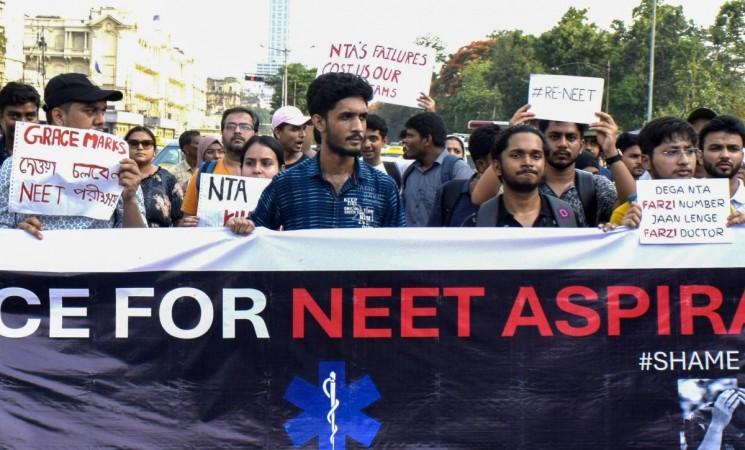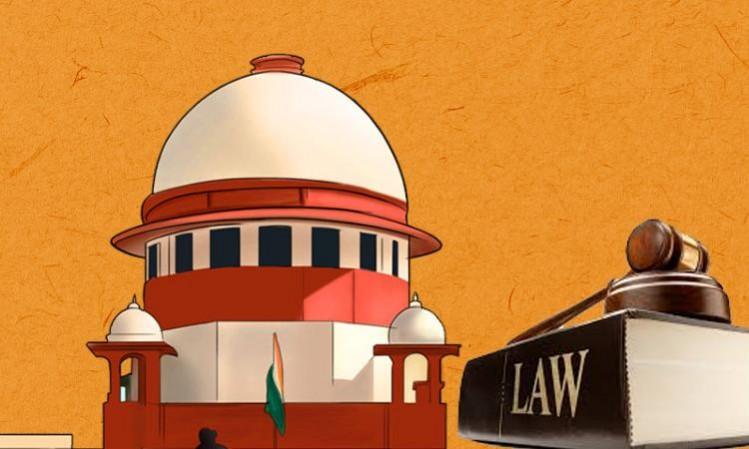
In a recent development, the Supreme Court has issued a notice on a new set of petitions filed by the National Testing Agency (NTA). The petitions seek the transfer of pleas pending before the Rajasthan High Court, which are related to the alleged NEET-UG paper leak, to the apex court.
The bench, presided over by Chief Justice of India DY Chandrachud, has ordered the tagging of NTA's transfer plea with the main batch of petitions, including pleas seeking cancellation of the NEET-UG exam. The next hearing for these petitions is scheduled for July 18.
The bench, which also includes Justices JB Pardiwala and Manoj Misra, declined to pass a formal order to stay the proceedings pending before the Rajasthan High Court. The court stated that the high court generally does not proceed once the Supreme Court issues a notice. This statement was made in response to the counsel representing NTA, who pressed for a stay order on proceedings pending before the high court.
This is not the first time the Supreme Court has intervened in matters related to the NEET-UG exam. On June 20, the top court had stayed proceedings pending before various high courts of the country pertaining to the alleged NEET-UG paper leak.

The court had also allowed the withdrawal of other transfer petitions filed by NTA seeking the transfer of writ petitions pending before various high courts. These petitions were related to the award of compensatory marks in view of an earlier order by the court.
In a significant move on June 13, the Supreme Court decided to close the issue relating to the grant of grace marks in the NEET (UG) exam. This decision was made after NTA submitted that scorecards of 1,563 candidates, who were awarded compensatory marks due to loss of time, had been withdrawn and cancelled. These candidates were given an option to appear in a re-test to be held on June 23 or to appear in counselling on the basis of actual marks obtained in the exam without normalization.
The Centre, in its latest affidavit filed before the top court, stated that the data analysis conducted by IIT Madras showed no indication of mass malpractice or a localized set of candidates being benefitted leading to abnormal scores in the NEET-UG examination held on May 5 this year.

This analysis was conducted to determine if any centres or cities showed signs of undue advantage to a large number of students due to malpractices. The report revealed that there were no indications of mass malpractice or any localized set of candidates benefitting unduly. The distribution of high marks was consistent across various cities and centres.
The National Testing Agency (NTA), which conducts the prestigious test, also filed a separate additional affidavit in the top court. It stated that it has carried out an analysis of the distribution of marks in NEET-UG 2024 at the national, state, city, and centre level. This analysis indicates that the distribution of marks is quite normal and there seems to be no extraneous factor, which would influence the distribution of marks.
The Supreme Court's intervention in this matter is reminiscent of its role in upholding the integrity of competitive exams in the past. The court has consistently emphasized the importance of fairness and transparency in these exams, which determine the future of millions of students in the country.

The NEET-UG row has sparked a nationwide debate on the integrity of competitive exams. While some argue for a complete retest, others believe that such a move would be unfair to the majority of students who have not indulged in any malpractice.
The Supreme Court's decision in this matter will have far-reaching implications on the conduct of future exams and the fate of millions of students across the country. The court's decision to not stay the proceedings in the Rajasthan High Court and its insistence on hearing all related pleas together is a testament to its commitment to ensuring justice.

















